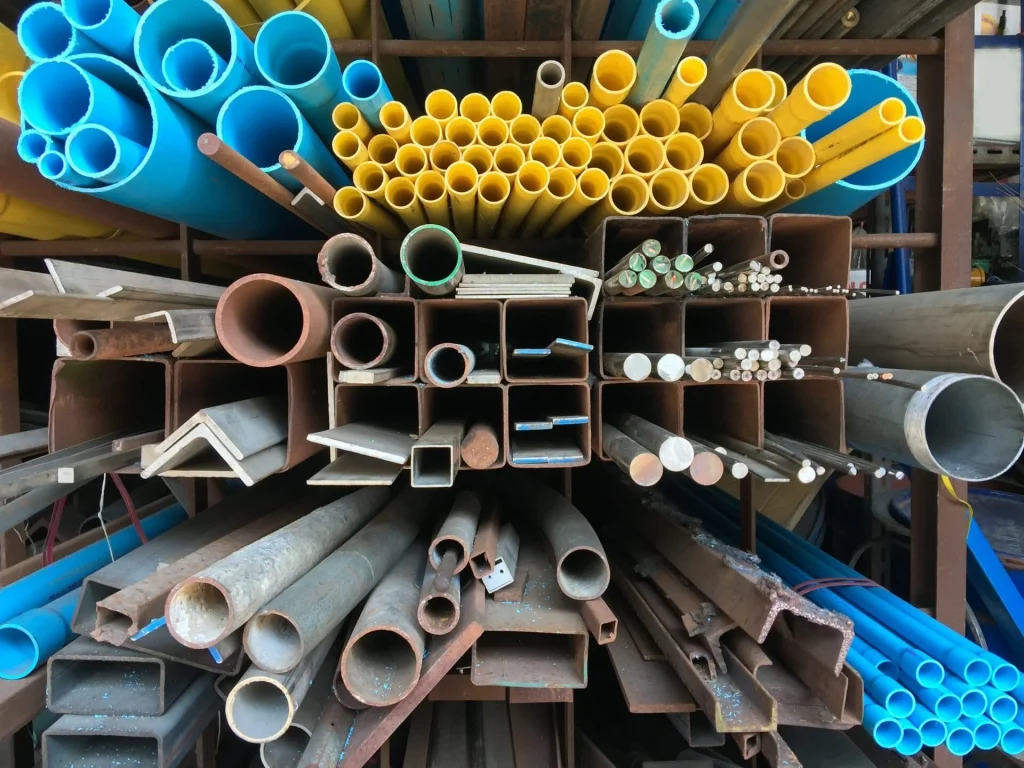What Plumbing Pipe Is Used in Houses in Tucson AZ
Selecting the right plumbing pipes is crucial to the longevity and efficiency of your home’s water system. In Tucson, Arizona, the unique climate and water quality considerations influence the choice of materials.
Below, we provide an in-depth analysis of the various plumbing pipes commonly used in Tucson residences, their advantages, disadvantages, and suitability for the region.

What Plumbing Pipes Are Used in Houses in Tucson, AZ?
When it comes to plumbing in Tucson, AZ, several types of pipes are commonly used in residential homes. Each type of pipe has its own advantages and disadvantages, and the choice often depends on factors such as cost, durability, and ease of installation. Here are the most commonly used plumbing pipes in Tucson homes:
1. Copper Pipes
Copper pipes have been a popular choice for plumbing for many years. They are known for their durability and corrosion resistance, making them a reliable choice for water supply lines. Copper pipes can last up to 50 years with proper maintenance, but they can be more expensive than other options.
✅Advantages:
Longevity: Copper pipes can last up to 50 years or more with proper maintenance.
Corrosion Resistance: They resist corrosion and are less likely to contaminate water.
Heat Tolerance: Suitable for hot and cold water applications.
❌Disadvantages:
Cost: Copper is more expensive than alternative materials.
Installation Complexity: Requires soldering, which can be labor intensive.
Suitability in Tucson:
Copper pipes work well in Tucson’s climate. However, the higher mineral content in local water can lead to scale buildup over time. Regular maintenance is essential to prevent this problem.
2. PEX Pipes (Cross-Linked Polyethylene)
PEX pipes have gained popularity in recent years due to their flexibility and ease of installation. They are freeze-resistant, which is beneficial in areas with occasional cold weather. PEX pipes are also cost-effective and corrosion-resistant, making them a great choice for hot and cold water lines.
✅Advantages:
Flexibility – They can be bent at corners, reducing the need for fittings.
Cost-effective – Generally less expensive than copper.
Freeze-resistant – They are less likely to burst in freezing conditions.
❌Disadvantages:
UV sensitivity – They are not suitable for unprotected outdoor use.
Potential chemical leaching – There are concerns about chemicals leaching into water, although PEX is approved for use in drinking water.
Suitability in Tucson:
PEX is ideal for Tucson homes, especially for retrofitting older plumbing systems. Its flexibility allows for easier installation in existing structures. However, it should be protected from direct sunlight to prevent degradation.
3. PVC Pipes (Polyvinyl Chloride)
PVC pipes are commonly used for drainage and sewer systems. They are lightweight, affordable, and resistant to chemical corrosion. However, PVC pipes are not suitable for hot water applications as they can become brittle over time.
✅Advantages:
Affordability: Cost effective compared to metal pipes.
Corrosion resistance: Resistant to corrosion and chemical damage.
Easy installation: Lightweight and easy to work with.
❌Disadvantages:
Temperature limitations: PVC is suitable for cold water only; CPVC can withstand hot water, but has lower temperature thresholds than metal pipes.
Brittleness: Can become brittle over time, especially when exposed to UV light.
Suitability in Tucson:
PVC is ideal for cold water lines and drainage systems in Tucson homes. CPVC can be used for hot water lines, but must be installed indoors to prevent UV exposure.
4. CPVC Pipes (Chlorinated Polyvinyl Chloride)
CPVC pipes are similar to PVC pipes, but they can withstand higher temperatures, making them suitable for both hot and cold water applications. They are also resistant to corrosion and chemical damage.
✅Advantages:
Affordability: Cost effective compared to metal pipes.
Corrosion resistance: Resistant to corrosion and chemical damage.
Easy installation: Lightweight and easy to work with.
❌Disadvantages:
Temperature limitations: PVC is suitable for cold water only; CPVC can withstand hot water, but has lower temperature thresholds than metal pipes.
Brittleness: Can become brittle over time, especially when exposed to UV light.
Suitability in Tucson:
PVC is ideal for cold water lines and drainage systems in Tucson homes. CPVC can be used for hot water lines, but should be installed indoors to prevent UV exposure.
5. Galvanized Steel Pipes
Galvanized steel pipes were once the standard for residential water lines, but are now less common due to their susceptibility to rust and corrosion over time. They are still found in some older homes, but are generally not recommended for new installations.
✅Advantages:
Initial durability: They are initially strong and resistant to mechanical damage.
❌Disadvantages:
Corrosion and rust: They are prone to rusting over time, causing water discoloration and reduced flow.
Shorter lifespan: They typically last between 20 and 50 years, depending on water quality.
Suitability in Tucson:
Due to the high mineral content of Tucson water, galvanized steel pipes are more susceptible to corrosion and are generally not recommended for new installations.
Read More: Water Line Plumbing and Pipe Fitting Pros and Cons
Choosing the Right Pipe Material for Your Tucson Home
When selecting plumbing pipes for your Tucson residence, consider the following factors:
Water Quality – High mineral content can affect the longevity of the pipes.
Extreme Temperatures – Materials must withstand Tucson’s temperature variations.
Installation Environment – Indoor or outdoor applications can determine the choice of material.
Budget – Balance initial costs with long-term maintenance expenses.
Conclusion
Choosing the right plumbing pipe for your Tucson, AZ home depends on several factors, including budget, durability, and specific plumbing needs. Copper and PEX pipes are popular choices due to their longevity and ease of installation, while PVC and CPVC pipes are commonly used for drainage and hot water lines. Consulting with a local plumber can help you make the best choice for your home’s plumbing system.
